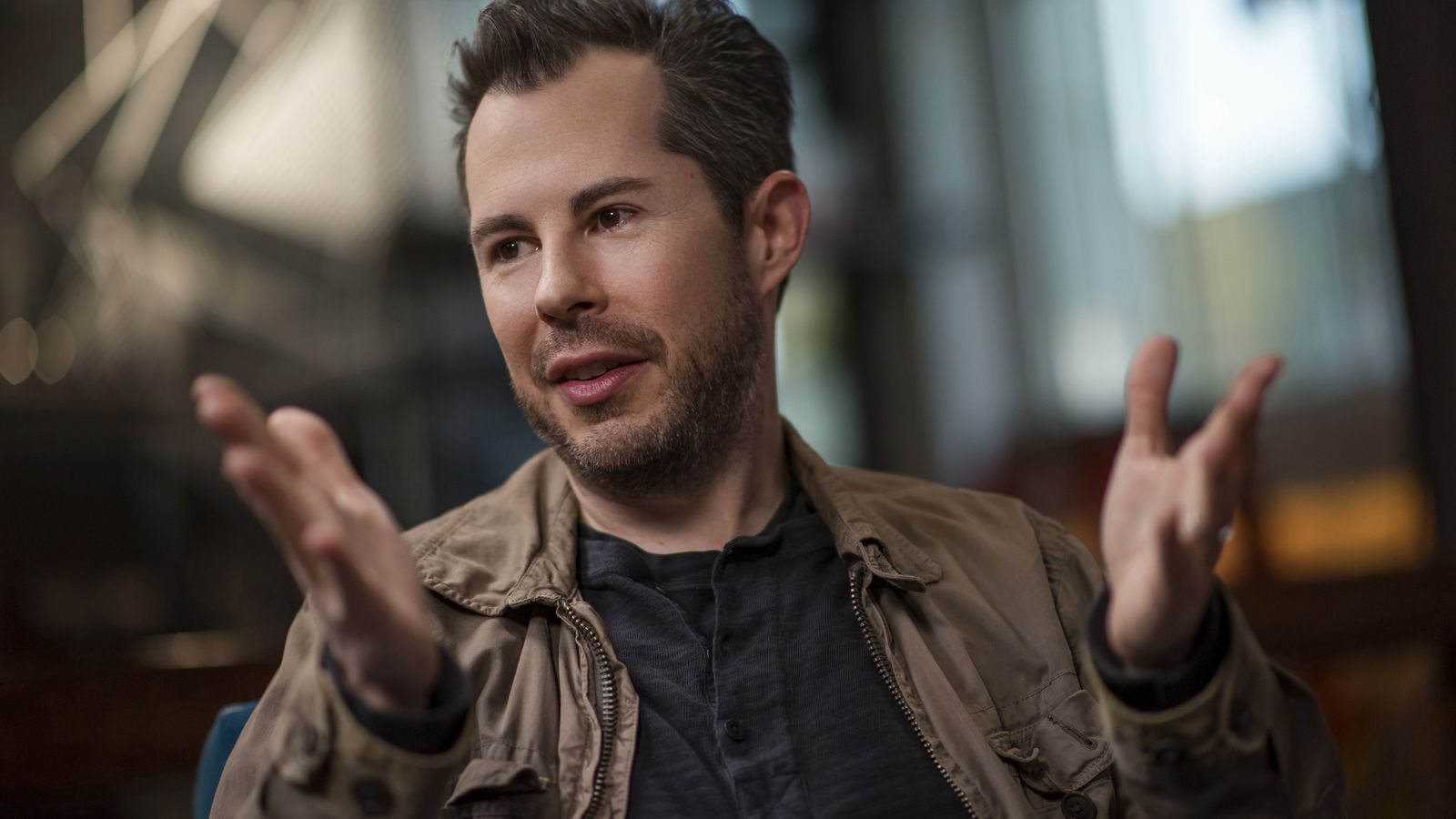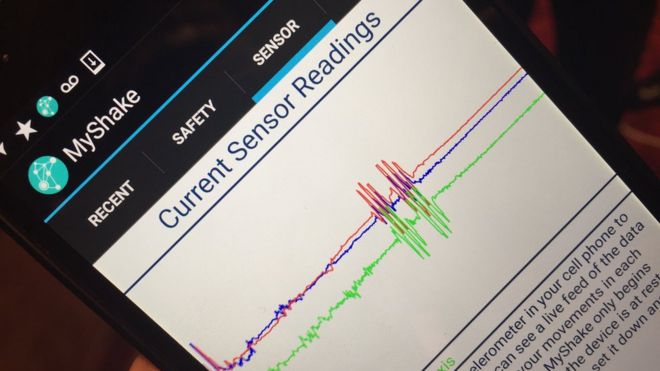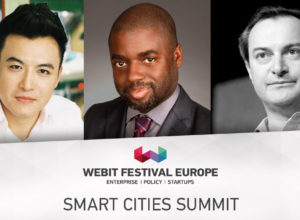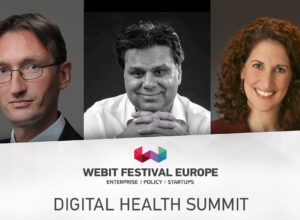Tag: technology
IBM stored information in an atom. What that means for BigData...
Webit.Festival will show you how technology will make our cities smarter
Learn about the latest advances in HealthTech at Webit.Festival
5 disruptive tech trends to watch in 2017
FinTech is going mainstream with help from Silicon Valley
Live stream for a living? It is now possible!
An app that can make it possible for you to live stream for a living just raised $25 million Series A funding! We are talking about Next Entertainment, Taiwanese startup, founded by Andy Zhong. Mr Zhong is very popular in the region, he already sold his previous startup FunPlus to Zhongji fo nearly 1 billion dollars. And now FunPlus is one of the investors in Next. Learn more about it here.

Meanwhile, there is information that Amazon is secretly building an app that matches truck drivers with shippers. It's a $800 billion industry, according to Business Insider. More on the matter, here.

Airfare prediction app Hopper has grown from 1 million downloads to over 10 million in the course of a year – a trajectory that’s allowed it to pull in $82 million CAD (~$61.2 million US) in additional funding to continue to grow its business. The Series C round was led by North American pension fund manager, Caisse de dépôt et placement du Québec, and includes participation from existing investors, Brightspark Ventures, Accomplice, OMERS, Investissement Québec and BDC Capital IT Venture Fund.

NextView Ventures, one of few seed-stage venture firms in Boston, is looking to raise at least $50 million for a third fund, shows an SEC filing that was processed yesterday. The firm closed its second fund with $40 million in 2014 and its debut fund with $21 million in 2012.

IBM announced that it would be working with BMW on R&D where Watson sensors and computing will be integrated into BMW cars to pick up car data and help with new systems aimed at vehicles running more efficiently and with more personalisation for specific drivers and passengers.
Amazon Go: no cashiers, no registers, and no lines
 Uber has acquired Geometric Intelligence, a startup co-founded by academic researchers with AI experience, and its team will provide the core for a new central AI lab being established at Uber’s SF HQ. You can read more about it here.
Uber has acquired Geometric Intelligence, a startup co-founded by academic researchers with AI experience, and its team will provide the core for a new central AI lab being established at Uber’s SF HQ. You can read more about it here.
 According to a report from Recode, the GV (nee Google Ventures) founder/former-CEO Bill Maris is raising $230 million for the project Section 32 - new healthcare-focused venture fund. Learn more about it here.
According to a report from Recode, the GV (nee Google Ventures) founder/former-CEO Bill Maris is raising $230 million for the project Section 32 - new healthcare-focused venture fund. Learn more about it here.
Hydrogen vehicles? Are they better than electric?
 Stefan Stokic, a 15-year old high school sophomore from Jackson, Mississippi, is working 130 hour per week for his dream. Stokic already has a startup called Slik, cofounded by fellow 14-year old student Soroush Ghondsi, and is connected with a bunch of high-profile Silicon Valley investors who are closely following their budding careers. Read more about the wonderboy here.
Stefan Stokic, a 15-year old high school sophomore from Jackson, Mississippi, is working 130 hour per week for his dream. Stokic already has a startup called Slik, cofounded by fellow 14-year old student Soroush Ghondsi, and is connected with a bunch of high-profile Silicon Valley investors who are closely following their budding careers. Read more about the wonderboy here.

Early-stage venture firm Network Society Ventures has snagged TechShop’s former CEO and co-founder Mark Hatch as general partner. Hatch is recognized as a pioneer of the maker movement, is a current entrepreneur in residence at UC Berkeley, and is a former Green Beret.
Sean Parker searching for a cancer vaccine, Neurotrack work to find...
 In other news, A Redwood City, Calif. startup called Neurotrack Technologies Inc. has created a brain health app that is helping scientists unravel the mysteries of memory, and work to find a cure for Alzheimer’s. It can detect signs of deteriorating brain health years before the first symptoms. Read more about it here.
In other news, A Redwood City, Calif. startup called Neurotrack Technologies Inc. has created a brain health app that is helping scientists unravel the mysteries of memory, and work to find a cure for Alzheimer’s. It can detect signs of deteriorating brain health years before the first symptoms. Read more about it here.
 Meanwhile, Twitter has a new VP of Product, named Keith Coleman, who was until now CEO of Yes, Inc., startup acquired today by the big company.
Bullpen Capital, a venture firm that specializes in post-seed stage deals, has closed its third fund at $75 million. The company invests in startups that previously closed a seed round of investment and showed solid signs of traction, but have been dubbed too early for traditional VCs.
Meanwhile, Twitter has a new VP of Product, named Keith Coleman, who was until now CEO of Yes, Inc., startup acquired today by the big company.
Bullpen Capital, a venture firm that specializes in post-seed stage deals, has closed its third fund at $75 million. The company invests in startups that previously closed a seed round of investment and showed solid signs of traction, but have been dubbed too early for traditional VCs.
 Seismologists at UC Berkeley released MyShake, an app that passively monitors for seismic activity, both watching for earthquakes and warning users if one is underway. In the months since its introduction, the app has outperformed its creators’ expectations, detecting over 200 earthquakes in more than ten countries. Read more about the important app here.
Seismologists at UC Berkeley released MyShake, an app that passively monitors for seismic activity, both watching for earthquakes and warning users if one is underway. In the months since its introduction, the app has outperformed its creators’ expectations, detecting over 200 earthquakes in more than ten countries. Read more about the important app here. 







